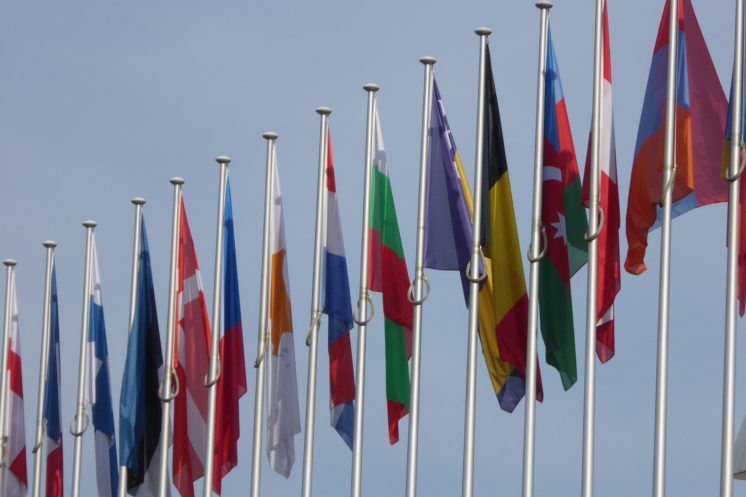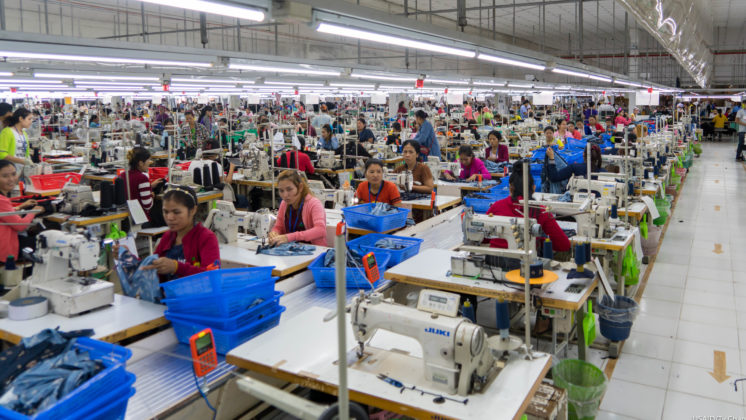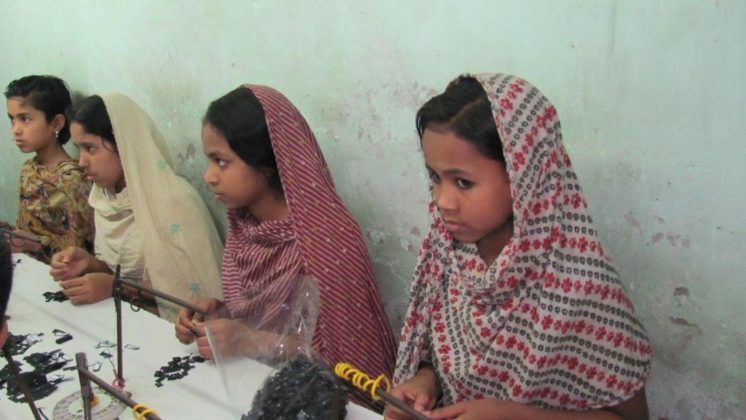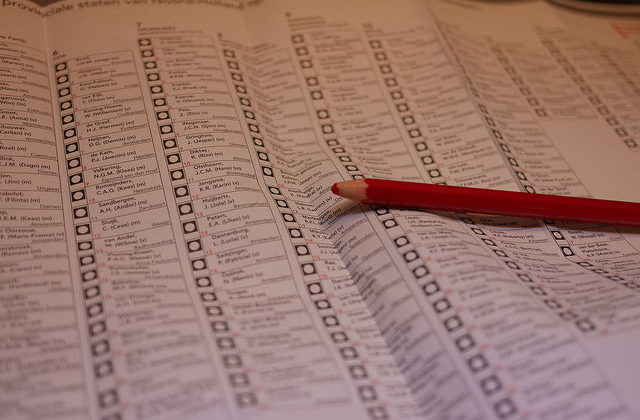The EU Corporate Sustainability Due Diligence Directive (CSDDD) may “result in a dilution of the OECD Guidelines” and may “compromise the integrity” of the international framework for responsible business conduct, warns the Dutch National Contact Point (NCP) for the OECD Guidelines on Responsible Business Conduct. In its analysis of the three EU proposals for the CSDDD, published in English last week, the NCP makes clear that the current positions are out of line with the OECD Guidelines. The MVO Platform calls upon EU Member States, the European Commission, and the European Parliament to ensure that the final version of the Directive reinforces, rather than weakens, international norms on responsible business conduct and corporate accountability.
 Photo: Pixabay
Photo: Pixabay‘Alignment with the OECD Guidelines for Multinational Enterprises on Responsible Business Conduct’ may sound technical, but it actually covers essential elements of the EU’s upcoming rules for corporate sustainability due diligence. These elements will determine whether the EU’s new Directive will have a positive, tangible impact on workers, communities, the climate, and the environment worldwide. Among the key alignment issues is the question of whether or not the Directive will require companies to integrate fair purchasing practices As prescribed in, among others, the OECD Due Diligence Guidance. into their business models, or instead will simply incentivise companies to shift the burden and cost of compliance onto suppliers As is the case in the EU proposals of the Commission and the Council. . Alignment with the OECD Guidelines also relates to the question of whether or not the Directive will apply to banks, insurers, and asset management companies in the financial sector Inclusion of the financial sector is in line with the OECD Guidelines, which apply to companies in all sectors, whereas the EU proposals create various exemptions for companies in the financial sector or even opt to exclude them completely (Council). . Another issue is whether companies will be required to involve stakeholders meaningfully, or whether the Directive will allow companies themselves to decide when they deem stakeholder involvement 'relevant' As proposed by the European Commission. .
In short, alignment of the Directive with the OECD Guidelines is essential to ensure that the upcoming legislation is actually effective at preventing and mitigating the widespread harm to human rights and the environment in the global value chains of Dutch and EU companies.
Alarm bells are ringing
The Dutch NCP is an authoritative voice on the interpretation of the OECD Guidelines. The NCP finds that the European Commission and Council’s proposals for the CSDDD diverge from the OECD Guidelines on fourteen of the twenty key areas it examined. The NCP’s main concern is that these restrictions “will result in a dilution of [..] the OECD Guidelines and/or in a lack of clarity about what is expected from companies in terms of [..] due diligence”. The NCP finds that there is a “serious risk that limitations of the CSDDD regulatory framework will detract from the due diligence standards in the UN Guiding Principles (UNGPs) and the OECD Guidelines”, undoing much of the progress made since 2011 in seven OECD Due Diligence guidance documents and dozens of NCP cases across the globe.
The NCP fears that companies falling within the scope of the EU Directive will only feel bound by the new EU rules and may ignore the aspects of the OECD Guidelines not covered by the CSDDD. To companies outside of the scope of the EU Directive According to the Commission and Council, the Directive will not apply to any company with less than €150 million turnover and 500 employees, except in three high-risk sectors (in which the threshold is €40 million for turnover and 250 employees). , the new law sends an even more worrying message, according to the NCP: if even the largest companies in the EU do not need to comply with the OECD Guidelines, why should smaller companies do so?
Ten areas of concern
The NCP has identified ten specific items from the positions of the European Commission and Council that require urgent attention. According to the NCP, the Commission and Council proposals put too much emphasis on contractual clauses as an instrument to prevent negative impacts and disregard the importance of other measures companies are expected to employ under the OECD Guidelines, such as improving procurement practices. The EU proposals also pay too little attention to the individual responsibility of companies to conduct due diligence, and instead encourage overreliance on multi-stakeholder initiatives and audits. The proposals for the Directive also contain much more limited requirements on providing remedy than the OECD Guidelines prescribe.
The concerns the NCP raises are in line with those previously raised by, among others, the UN High Commisioner for Human Rights, the UN Working Group on Business and Human Rights, the ILO, UN and OECD, and Shift, the international centre of expertise on the UNGPs. Another comprehensive analysis of the various shortcomings of the EU proposals vis-à-vis the OECD Guidelines was published this summer by OECD Watch, a global network of civil society organisations working on the OECD Guidelines.
Urgent action from EU Member States is needed
The UNGPs and the OECD Guidelines have been the foundation of the international normative framework for responsible business conduct and corporate accountability since 2011. In June 2023, 51 OECD Member and non-Member States approved the updated version of the Guidelines at the OECD Ministerial Council, re-affirming the Guidelines’ status as “the leading global standard on responsible business”. It would therefore be completely illogical if only months later EU Member States chose to diverge from the same OECD Guidelines they re-approved at the OECD in July. Moreover, frontrunner companies are already implementing the OECD Guidelines in their operations.
The publication of the English translation of the Dutch NCP’s analysis comes at exactly the right time, with EU Member States, the European Parliament, en the European Commission currently conducting trilogue negotiations on the final version of the Directive. If the EU is serious about implementing an effective law that truly delivers on its promise of improving respect for human rights and the environment in global value chains, the negotiators must ensure full alignment of the Directive with the OECD Guidelines.






